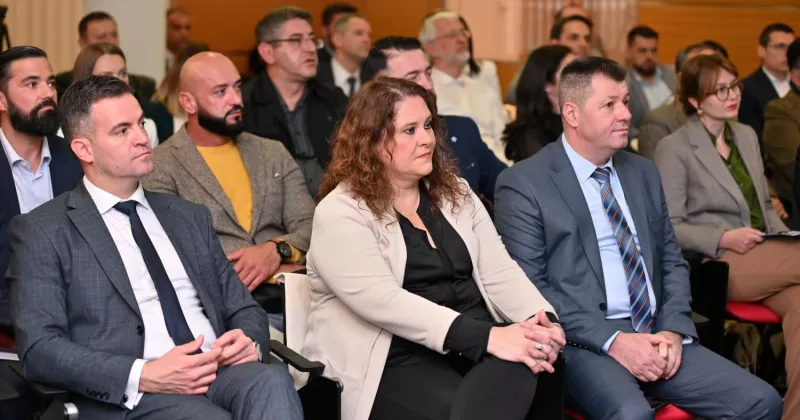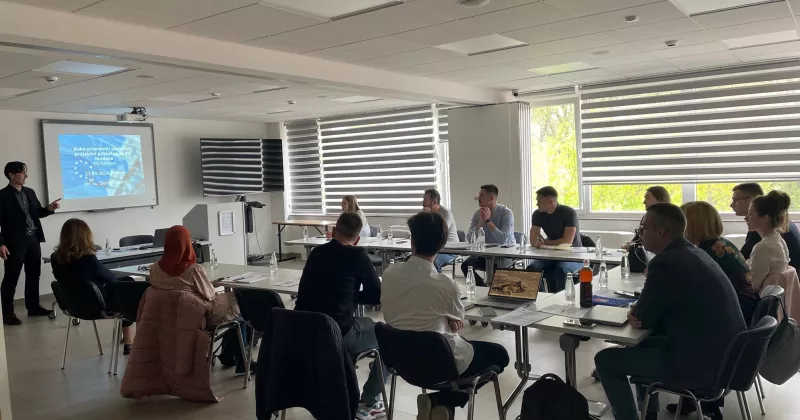MEDICE - Migrant Women as Healthcare Mentors
Migrants across Europe have less control over their health particularly because they lack the skills to easily access health information. Researchers predict that the numbers of migrants will keep growing, especially because of climate changes and we are faced with a European challenge that needs European cooperation to address the growing needs of migrants.
The ERASMUS+ project ‘MEDICE- Migrant Women as Healthcare Mentors’ supports migrant women, adult and language educators, health practitioners, social workers and volunteers at European level by providing tools produced with a European approach and dimension thanks to the project’s transnational nature.
Refugee and Migrant Health
According to the Report “Promoting the health of refugees and migrants” (WHO, 2017) women, children including unaccompanied minors, and people with disabilities – are particularly vulnerable to health problems. These individuals are at higher risk of developing communicable and noncommunicable diseases, including mental health problems. Migration and displacement can also pose specific health threats, including sexual violence, especially against women and girls. This is particularly significant, since women and girls who are refugees or migrants often face diverse sexual and reproductive health challenges and are most vulnerable to preventable mortality and morbidity arising from lack of sexual and reproductive health services.
Health: Access
The Charter of Fundamental Rights of the European Union states that “everyone has the right of access to preventive health care and the right to benefit from medical treatment under the conditions established by national laws and practices”. However, legal status has proved to be one of the main formal barriers to migrants' access to healthcare services, and communication and cultural differences the main informal barriers.
The MEDICE project facilitates the access of migrant women and their children to the healthcare services of their host countries by developing innovative language learning tools related to healthcare issues. These tools will be available to adult language educators and to migrants for self-learning purposes. Moreover, a Multimedia Mentoring Guide is prepared for adult educators in to train migrant women to act as healthcare mentors within their communities, providing useful information to their peers on the healthcare system of their host country, and promote a positive attitude towards preventive practices.
Health: Communication
In addition, through the project, healthcare providers have access to innovative tools to use for communication with migrant women during examination process (application with medical history questionnaire translated in 15 languages, mobile app with e-vocabulary and useful phrases). These tools can help safeguard the confidentiality of information shared between the doctors and the patients as migrants often tend to use other relatives, friends, even their children as interpreters.
The project partnership is led by ASTOFAN, an agency of the Municipality of Akureyri, Iceland, and comprises partners from Cyprus, Synthesis Center For Research And Education Ltd., from Czech Republic, Spolek PELICAN, z.s., from Poland, Spoleczna Akademia Nauk, from the UK, The Mosaic Art Sound Ltd.
Despite all difficulties arisen from the recent COVID-19 pandemic, the partnership was able to work hard on the tasks and in few months the project will end with its rich and detailed products available free of charge through the project's online Resource Database.
About the author
 Teresa Dello Monaco
Teresa Dello Monaco
Graduate in Foreign Languages in Italy, she also studied singing and music theory. Educator and researcher of music as a science/art.
As an international cultural events organizer, she has worked with many musicians such as Philharmonia Orchestra, Dietrich Fischer-Dieskau, Daniel Levy, Berlin Quartet, Ars Antiqua de Paris, Imrat Khan and Ravi Shankar.
She has designed and coordinated successful projects on inclusiveness and language learning, mainly by using music as a tool. She gained a vast experience in creating innovative didactic tools and is a keynote speaker at international conferences on education, social inclusion, intercultural training and innovative language learning.
You may also be interested in:
Tailoring language learning to meet refugees’ needs (blog)
Using digital skills to challenge prejudice and discrimination (blog)
Lots of diversity, not enough equality – how can the ESOL curriculum help promote anti-racism? (blog)
European Agenda for Adult Learning, UK 2020: Participation, Access, Quality (blog series)





Świetny projekt i doskonała